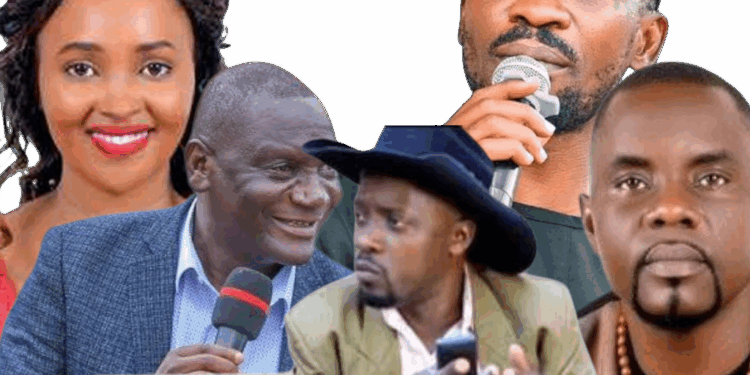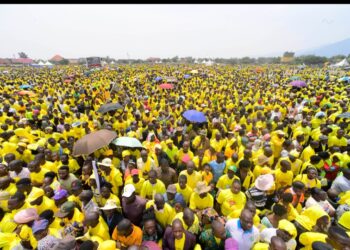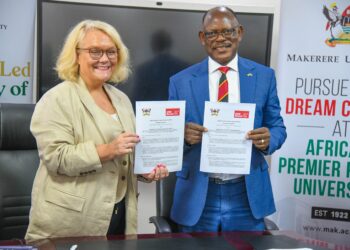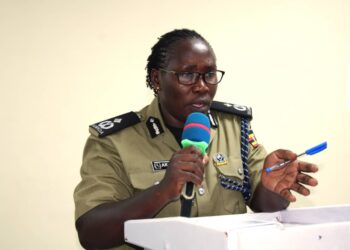Uganda stands at a critical crossroads, where the promise of democratic renewal risks being eclipsed by a troubling trend of populist theatrics and celebrity politics. The National Unity Platform (NUP), once heralded as a beacon of youthful defiance and a fresh alternative to entrenched political structures, now finds itself under intense scrutiny—not for its ideology, but for the caliber of individuals it is elevating to positions of national leadership. The recent media interview by Proscovia Mukisa, the NUP flagbearer for Mityana Woman MP, has ignited a firestorm of debate about the quality of candidates being endorsed by the party. Her performance, widely criticized for lacking depth and clarity, has become emblematic of a deeper malaise: the degeneration of opposition politics into a spectacle of dramatists rather than a forum for serious national discourse.
Ibrahim Ssemujju Nganda, a seasoned opposition figure and respected legislator, has not minced words in his critique. He accuses NUP of sending individuals into political offices they do not deserve, warning that the party risks becoming a caricature of itself. His concerns are not isolated. Across the country, many Ugandans are beginning to question whether the party’s choices reflect a genuine commitment to governance or a desperate attempt to ride the wave of celebrity and populism. The endorsement of figures like Mulyanyama of Makindye East, Fred Nyanzi for Kawempe South, Swengere of Jinja North, Ali Buken (Nubian Lee), and Mathias Walukaga for Busiro East has only intensified these anxieties. These individuals, while popular in their respective spheres, lack the legislative experience, policy acumen, and strategic foresight required to navigate the complexities of national governance.
The sidelining of grounded and competent leaders such as Joyce Bagala, Mathias Mpuuga, Paul Keneth Kakande, Dr Abeid Bwanika, and Dr Roy Ssemboga is not just a political misstep—it is a national tragedy in the making. These are individuals with proven track records, intellectual depth, and a demonstrated commitment to public service. Their exclusion from the party’s frontline raises uncomfortable questions about NUP’s internal decision-making processes and its long-term vision for Uganda. If the party continues to prioritize popularity over competence, Uganda could find itself governed by individuals whose understanding of policy is superficial at best and dangerously misguided at worst.
The implications of such leadership are profound. In a country grappling with youth unemployment, regional inequality, and a fragile healthcare system, the need for informed and strategic decision-making cannot be overstated. Leaders must be able to interpret data, craft legislation, negotiate international partnerships, and manage complex bureaucracies. They must understand the nuances of economic policy, the intricacies of constitutional law, and the delicate balance of regional diplomacy. These are not skills that can be improvised on a campaign stage or learned through social media activism. They require years of study, mentorship, and hands-on experience—qualities that many of NUP’s current flagbearers simply do not possess.
Consider the potential disaster if individuals like Bobi Wine, Nabbosa, Walukaga, and Mulyanyama were to assume control over key national decisions. Bobi Wine, while charismatic and influential, has yet to articulate a coherent policy framework beyond slogans and protest anthems. His rise has been fueled more by discontent with the status quo than by a clear roadmap for transformation. Nabbosa and Walukaga’s public engagements have revealed a troubling lack of preparedness, raising doubts about their ability to represent their constituents effectively, let alone contribute meaningfully to national legislation. Mulyanyama, known more for his populist rhetoric than for any substantive policy contributions, even as a division Mayor in Makindye, exemplifies the dangers of elevating individuals based on crowd appeal rather than competence.
This trend is not just a threat to NUP’s credibility—it is a threat to Uganda’s democratic future. When political parties become vehicles for celebrity endorsement rather than platforms for ideological contestation, the very essence of democracy is undermined. Parliament risks becoming a stage for theatrics rather than a chamber for deliberation. National budgets could be debated by individuals with no understanding of fiscal policy. Foreign policy could be shaped by those unfamiliar with global dynamics. Education, health, and infrastructure could be entrusted to leaders whose qualifications are limited to their ability to trend on TikTok or draw crowds at rallies.
The writer is the Assistant Resident City Commissioner for Nyendo Mukungwe in Masaka City.
Do you have a story in your community or an opinion to share with us: Email us at editorial@watchdoguganda.com














